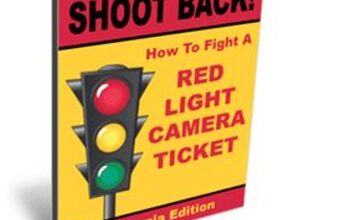California Appellate Court Refuses to Publish Anti-Camera Decision
A California appellate court on Wednesday declined to publish a decision overturning a ticket issued by an unlawful red light camera operation ( view ruling). California Superior Court, San Mateo County Appellate Judge Mark R. Forcum turned down attorney Frank Iwama’s request that he explain his reasoning more fully in a published decision. Unpublished cases cannot be cited as precedent in California, and motorists interested in challenging citations will have to repeat from scratch all arguments about the program’s illegality.
“I am deeply disturbed and saddened that, despite the judge’s courageous action in interpreting the law, the judge has not taken the next step of modifying and certifying his opinion for publication,” Iwama said in a statement. “The publication of the opinion in the Official Reports would have served as a badly needed and useful precedent for the people in seeking guidance in the interpretation and application of the cost-neutrality clause in red-light camera contracts.”
Other California courts have struck down red light camera programs on various legal grounds in cases such as: Franco, Murray, Graham, Williams and Bohl. The Fischetti case actually held published status for a time only later to become depublished by the state supreme court. In court filings, the League of California Cities suggested that allowing such rulings to stand with precedential value would force them to issue refunds or cancel their programs outright, costing millions.
“One of the first principles we all learn in school is the power of the Constitution and the independence and separation of powers between the three branches of government,” Iwama said. “During this difficult economic time, it seems that financial necessity overrules the highest principles between what is right and wrong regardless of potential economic consequence.”
Ken Schmier, Chairman of the Committee for the Rule of Law has been fighting the state’s use of non-publication rules. His cause has gained traction over time. In 2000, the US Court of Appeals for the Eight Circuit issued a scathing decision declaring non-citation rules unconstitutional.
“Some forms of the non-publication rule even forbid citation,” Judge Richard S. Arnold wrote in Anastasoff v. US. “Those courts are saying to the bar: ‘We may have decided this question the opposite way yesterday, but this does not bind us today, and, what’s more, you cannot even tell us what we did yesterday.’ As we have tried to explain in this opinion, such a statement exceeds the judicial power, which is based on reason, not fiat.”
This line of reasoning brought the US Judicial Conference in 2006 to adopt a rule that put an end to all non-citation rules in the federal court system. Schmier believes that California’s highest court refuses to follow suit because that would mean relinquishing the power that comes from deciding which cases become the law of the land.
“The idea is that a small group of people (actually the chief justice and a few of his political supporters) will control California’s operative precedent,” Schmier told TheNewspaper. “The red light cases are but one example where one defendant will be treated differently from the rest because he had an attorney appeal the case. But we ask: What kind of police cites people, what kind of prosecutor prosecutes people, and what kind of judge convicts people, all the while knowing that its own appellate court has decided that the people are not to be charged?”
[courtesy thenewspaper.com]
More by Robert Farago
Latest Car Reviews
Read moreLatest Product Reviews
Read moreRecent Comments
- BlackEldo Anal grotto is NOT going to be happy about that H/K engine quip...
- Tassos GOOD CAR GOOD PRICE. MILEAGE IS DECENT CONSIDERING HOW LONG HONDAS LAST. THUS SPOKE REAL TASSOS. BIDEN DOLLARS
- Jimbo1126 $29,995? Chevy boasting that? It still looks like it starts at $19,995 and you know it's true.
- Tassos Money IS no object for me, but I would NEVER live in such a LOSER building.The REAL Tassos.
- Bd2 None of this would have happened had Hillary Rodham become president in 2016.


































Comments
Join the conversation
St Basil’s? I thought for a moment there that was a pic of the California state capital building!